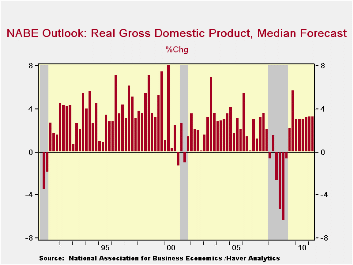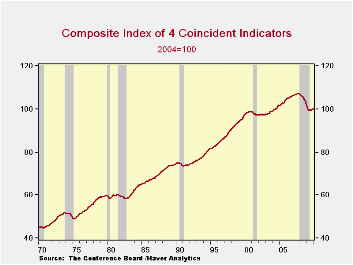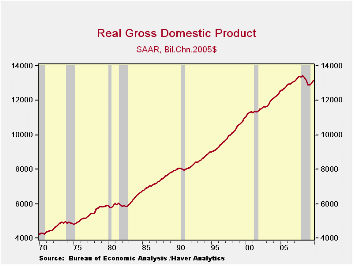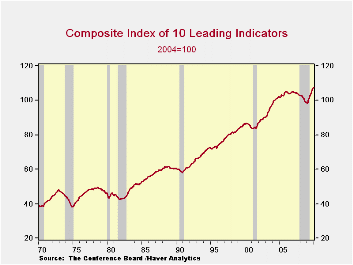 Global| Apr 12 2010
Global| Apr 12 2010Dating The U.S. Recession's End
by:Tom Moeller
|in:Economy in Brief
Summary
The Business Cycle Dating Committee at the National Bureau of Economic Research indicated that it's premature to call an end to the U.S. recession. Their latest communiqué can be found here. Nevertheless, Haver Analytics has gone [...]


The Business Cycle Dating Committee at the National Bureau of Economic Research indicated that it's premature to call an end to the U.S. recession. Their latest communiqué can be found here.
Nevertheless, Haver Analytics has gone ahead and updated the business cycle shading in its charts, primarily for two reasons. We have chosen June 2009 as the end date for the recession: 1) The index of coincident economic indicators, which includes data covering nonfarm payrolls, industrial production, business sales and personal income, troughed in June. 2) Real GDP growth has been positive since 3Q '09 and likely was again positive last quarter. The 1Q data will be published later this month.


Tom Moeller
AuthorMore in Author Profile »Prior to joining Haver Analytics in 2000, Mr. Moeller worked as the Economist at Chancellor Capital Management from 1985 to 1999. There, he developed comprehensive economic forecasts and interpreted economic data for equity and fixed income portfolio managers. Also at Chancellor, Mr. Moeller worked as an equity analyst and was responsible for researching and rating companies in the economically sensitive automobile and housing industries for investment in Chancellor’s equity portfolio. Prior to joining Chancellor, Mr. Moeller was an Economist at Citibank from 1979 to 1984. He also analyzed pricing behavior in the metals industry for the Council on Wage and Price Stability in Washington, D.C. In 1999, Mr. Moeller received the award for most accurate forecast from the Forecasters' Club of New York. From 1990 to 1992 he was President of the New York Association for Business Economists. Mr. Moeller earned an M.B.A. in Finance from Fordham University, where he graduated in 1987. He holds a Bachelor of Arts in Economics from George Washington University.






